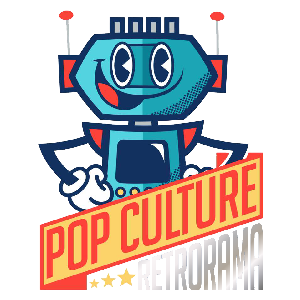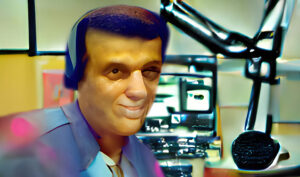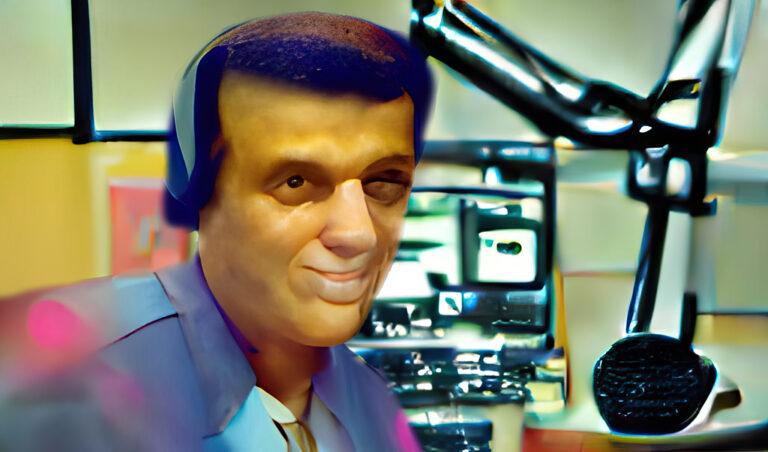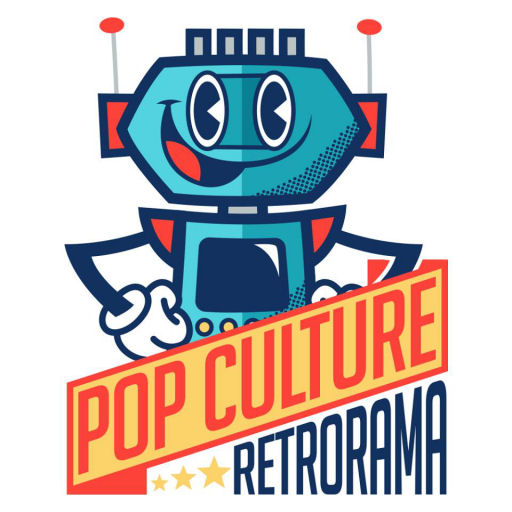Every so often, television gifts us with a show that’s so far ahead of its time that it almost hurts your head to think about it. Was Buck Henry’s Quark such a show?
The short-lived science fiction spoof premiered its pilot on NBC mere days before Star Wars began its conquest of American theaters. Surely this was the right show at the right time…right?
Well, maybe…or maybe not. The half-hour pilot episode of Quark is really more of a Star Trek spoof than anything else – to the point that even some of the same sound effects were used. In addition to intrepid garbage ship captain Adam Quark (Richard Benjamin), the pilot introduces us to the Betties (played by future Doublemint Twins Tricia and Cyb Barnstable), who do most of the flying, and Gene/Jean (Tim Thomerson in what really should have been his breakout role), who – depending on how much stress the situation at hand is exerting – may randomly shift between an ultra-macho masculine persona and a much more feminine persona.

NBC had…concerns. A lot of them. Thomerson’s character, in particular, reportedly made the network suits break out in a cold sweat – and yet, from a 21st century perspective, Gene/Jean may be the part of the show that’s most confoundingly ahead of its time. Thomerson repeatedly stole scenes, chewed up scenery, and spat it out in this role, and since Quark is a comedy, he plays the polar-opposite personalities as ultra-macho and as something that might be described as stereotypically gay. And yet, what is Gene/Jean if not an early poster child for gender fluidity, decades before that term was commonly known? The character was played for broad laughs, and masterfully so, but the network wanted the gender-swapping element soft-pedaled.

Other characters, such as Douglas Fowley’s slightly mad scientist O.B. Mudd, would be making an exit before Quark came back nearly a year later in 1978 as a mid-season replacement. Replacing Mudd would be Richard Kelton as Ficus, an intelligent humanoid plant serving as Quark’s poker-faced and decidedly Spock-esque science officer. It’s ironic that the addition of Ficus made Quark an even sharper Star Trek parody, because the summer of 1977 had given series creator Buck Henry (Get Smart) an even meatier (or is that meteor?) target for satire: Star Wars.
With its one-hour return to the schedule in February 1978, Quark pivoted toward spoofing every worthy genre target it could find, rather than just one, and the episode title, May The Source Be With You, demonstrated that Henry and his writers were not afraid to put science fiction’s new flavor of the moment in their crosshairs.

The return of Quark to NBC’s prime time schedule in early 1978, despite science fiction rapidly becoming a permanent fixture in the American media landscape thanks to Star Wars, lasted only seven episodes. In that time, it spoofed quite a few sci-fi tropes, including one character aging rapidly, evil twins, two-part epics, and artificially intelligent computers with major personality flaws. The episode Vanesa 38-24-36, spoofing 2001‘s HAL 9000 with its title character, was Quark’s last gasp on the air before the plug was pulled in April 1978.

Quark certainly wasn’t guilty of being not funny, nor was it somehow exempt from being real ’70s sci-fi. Could it be that the show was just too far ahead of its time? It may not have been as highbrow as The Hitchhiker’s Guide To The Galaxy (which also debuted, in its original pre-novel radio series form, in 1978), and it may not have been as much of an obvious space sitcom as Red Dwarf (which wouldn’t arrive until ten years later). It required a little bit of familiarity with the tropes it was skewering, just as Buck Henry and Mel Brooks’ masterpiece Get Smart did – Get Smart was funny on its own, but even funnier if you were familiar with the conventions of The Man From U.N.C.L.E. and Mission: Impossible.
Sadly, Quark probably won’t be reuniting his crew. Richard Kelton died later in 1978 of carbon monoxide poisoning in an improperly ventilated trailer while filming another NBC production, the miniseries Centennial. Richard Benjamin transitioned into a directing career in the 1980s, and was behind the camera for such movies as The Money Pit, Mermaids, City Heat, and Made In America. At around the same time, Tim Thomerson, whose stint on Quark made perfect sense in the context of his early days as a stand-up comic, became known for very different roles in such movies as the Trancers series, Zone Troopers, Dollman, and quite a few others; some of his tough-guy villain roles really didn’t exploit his comedic gifts. The Barnstable sisters went on to grace everything from Wrigley’s gum commercials to the cover of Playboy. Richard Benjamin, in particular, has been known to express fondness for his brief tour of duty as Adam Quark.
All eight episodes have been released on DVD, so you, too, can reacquaint yourself with Quark and his adventures. They seem quaint now – but they may have been too far ahead of the curve for 1978.
Video courtesy Sean Mc




+ There are no comments
Add yours